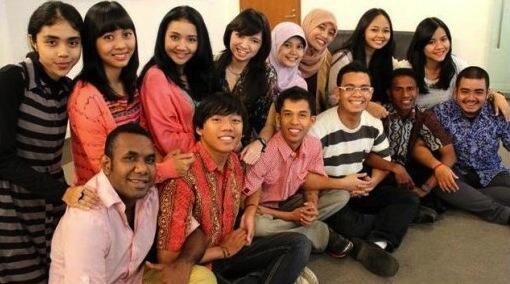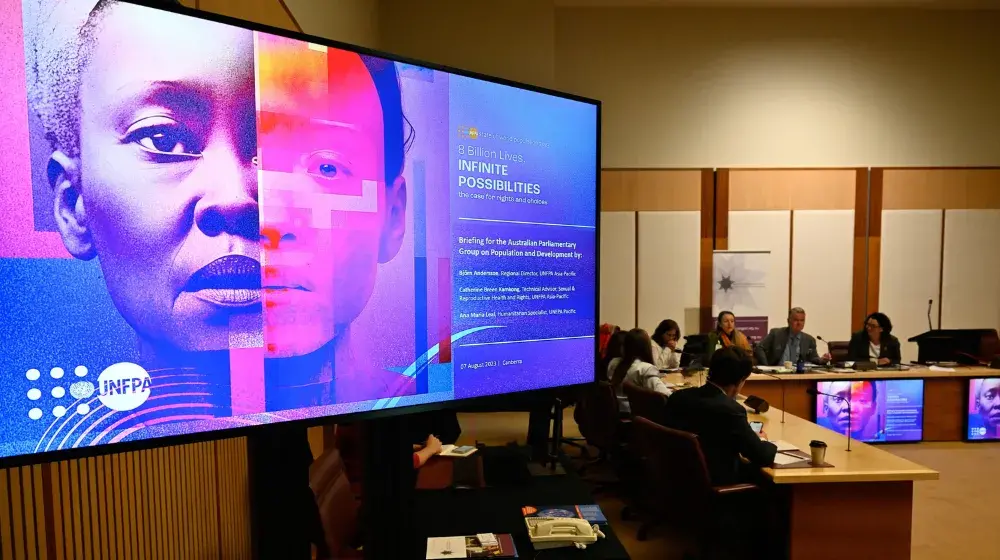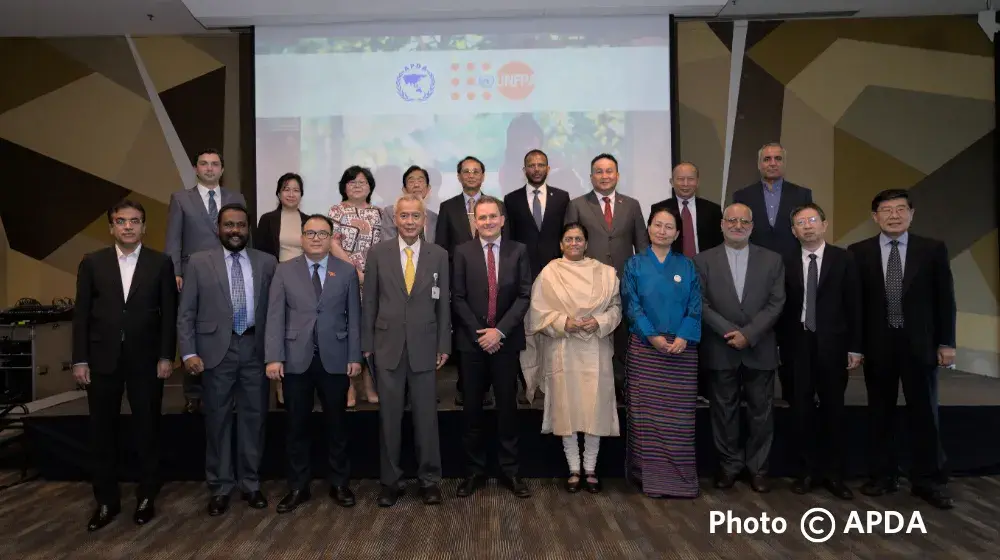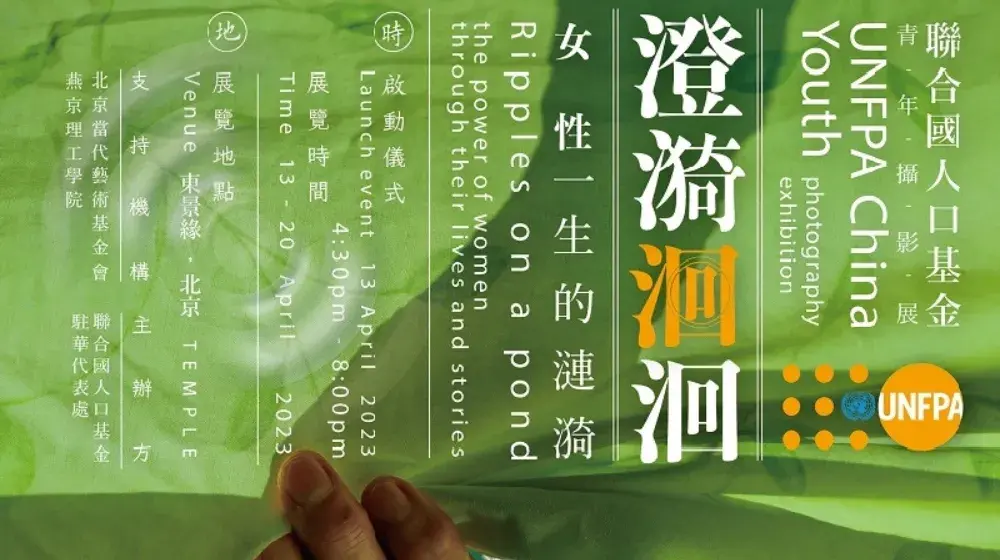The National Population and Family Planning Board of Indonesia (BKKBN), in collaboration with the United Nations Population Fund (UNFPA), and Partners in Population and Development (PPD), organized an inter-ministerial conference from September 18 to 20 in Bali, addressing the latest developments in South-South and Triangular Cooperation (SSTC) to assist developing countries involved in attaining the 2030 Sustainable Development Agenda by mainstreaming population and development issues across the Sustainable Development Goals (SDGs).
UNFPA's Executive Director Natalia Kanem explained in a keynote address what SSTC really means in terms of real-life impact, and why it's such an important modality in achieving the SDGs.
H.E. Dr. Nila Moeloek, Minister of Health of the Republic of Indonesia;
H.E. Ms. Susan Shabangu, Minister for Social Development, Government of the Republic of South Africa and Secretary of the PPD Board;
H.E. Dr. Sigit Priohutomo, Chairperson of BKKBN;
Excellencies, distinguished guests, ladies and gentlemen,
Selamat pagi! Good morning!
I would like to begin by thanking the Government of the Republic of Indonesia, the Indonesian National Population and Family Planning Board (BKKBN), and Partners in Population and Development for organizing this Inter-Ministerial Conference in collaboration with UNFPA.
This is the largest South-South Cooperation conference on the topic of sexual and reproductive health and population and development. We are joined by delegations from 42 national governments, by intergovernmental organizations, and of course, by many Indonesian agencies.
It is a pleasure to be here with all of you. It is good to be back in Indonesia, the birthplace of South-South Cooperation, which has its roots in the first Asian–African Conference in Bandung in 1955.
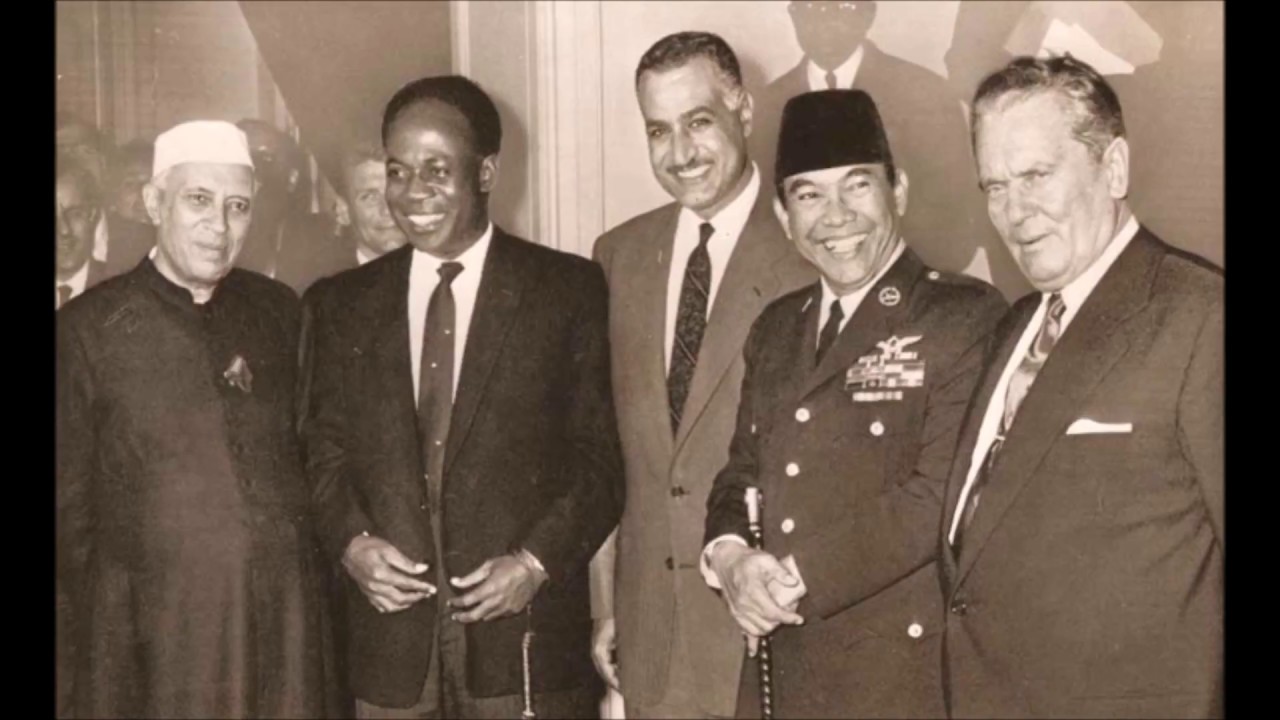
Indonesia's President Sukarno at the 1955 Asia-Africa Conference in Bandung with heads of state including India's prime minister Jawaharlal Nehru
In his address to the Bandung conference, President Sukarno, the founding President of Indonesia, reminded participants that “All of us…are united by more important things than those which superficially divide us…. We are united by a common determination to preserve and stabilize peace in the world.”
I greet you in the name of peace!
Next year the global community marks the 40th Anniversary of the Buenos Aires Plan of Action for Technical Cooperation, and our outcome this week will inform the BAPA+40 Summit in March 2019 in Buenos Aires.
We at UNFPA will also celebrate two historic milestones next year: the 50th anniversary of UNFPA and 25 years since the landmark International Conference on Population and Development in Cairo.
So we all have a lot to celebrate – and we have a lot of work ahead of us to accomplish our ambitious global goals for sustainable development.
South-South and Triangular cooperation can be a game-changer for global development, as more and more middle income countries share valuable lessons from their own development experiences.
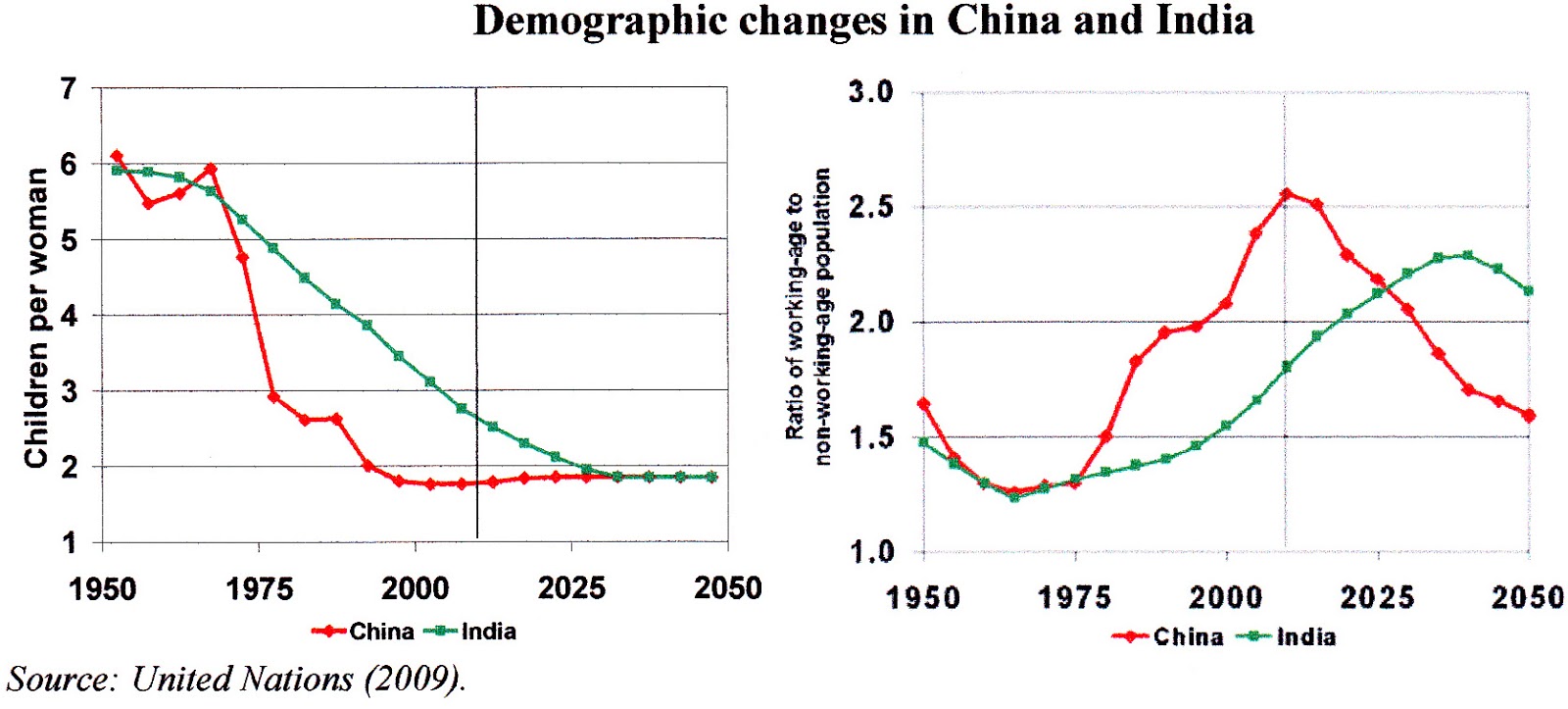
India and China, for example, have much to share about the investments and policies that helped them realize the demographic dividends that have contributed so significantly to their national development.
Countries with similar environments, facing similar challenges and working towards common goals can benefit tremendously from these effective, reciprocal and relevant partnerships.
Relevance is a key.
In fact, many context-appropriate solutions are only available in the Global South. Cooperation and knowledge sharing between Mali and Cote d’Ivoire on addressing obstetric fistula is a good example of this. Fistula is a medical issue rarely seen these days in developed countries.
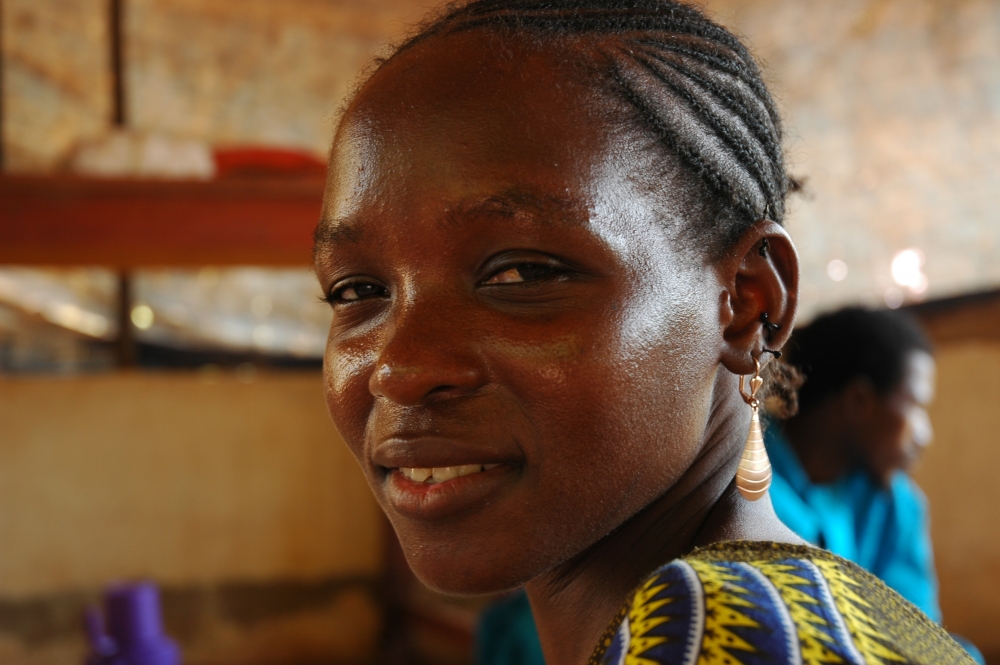
Addressing the challenge of fistula in Mali through collaboration between countries (Image: IRIN/Phuong Tran)
Cuba, for example, has been sharing with other Caribbean countries their experience in humanitarian programming, particularly in addressing the shared challenge of responding to and preparing for hurricanes and natural disasters. So it’s logical that countries facing similar challenges in a similar context should turn to one another.
Shared culture can make South-South a particularly effective model of development cooperation. Indonesia’s BKKBN, for example, shared with the Philippines its expertise in family planning advocacy and communication, which proved useful in Muslim communities in the southern part of the country. This is also an excellent example of faith-based organizations working in close collaboration with national agencies and other civil society organizations.
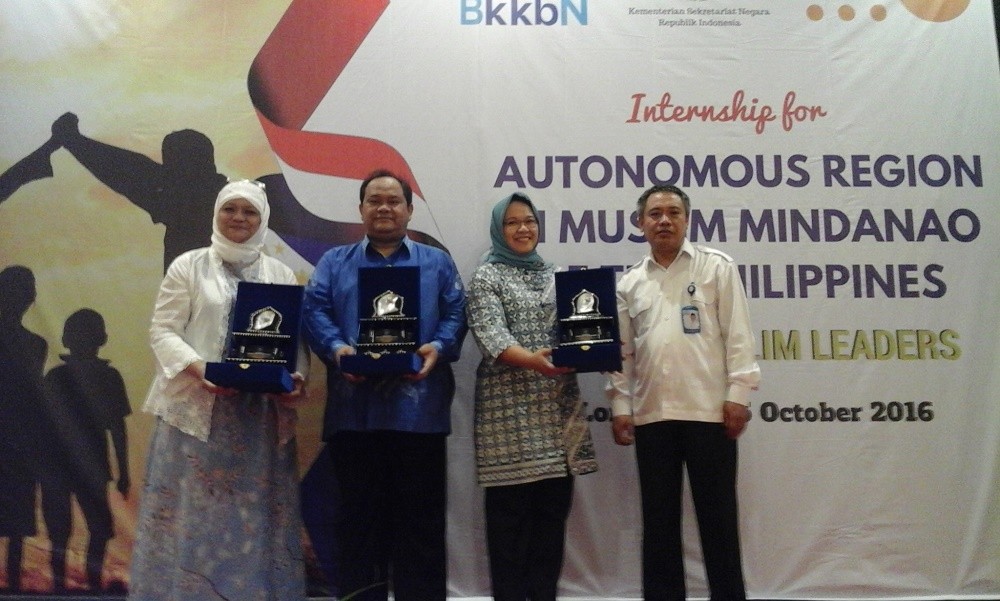
Young Filipino Muslims from Mindanao study family planning in Indonesia through South-South cooperation facilitated by BKKBN and UNFPA
Over the next few days, a number of countries will present their experiences.
As countries prepare for the upcoming 2020 census round, for example, they may draw valuable lessons from Brazil’s efforts to improve capacity on census, which we will hear about on Thursday.
South-South cooperation can help raise regional or global awareness of emerging issues and generate commitment and a joint search for solutions.
We see this with the case of ageing and low fertility. This is an issue being discussed regionally in Eastern Europe, as well as in Asia and the Pacific. And we will hear about some of these experiences later today.
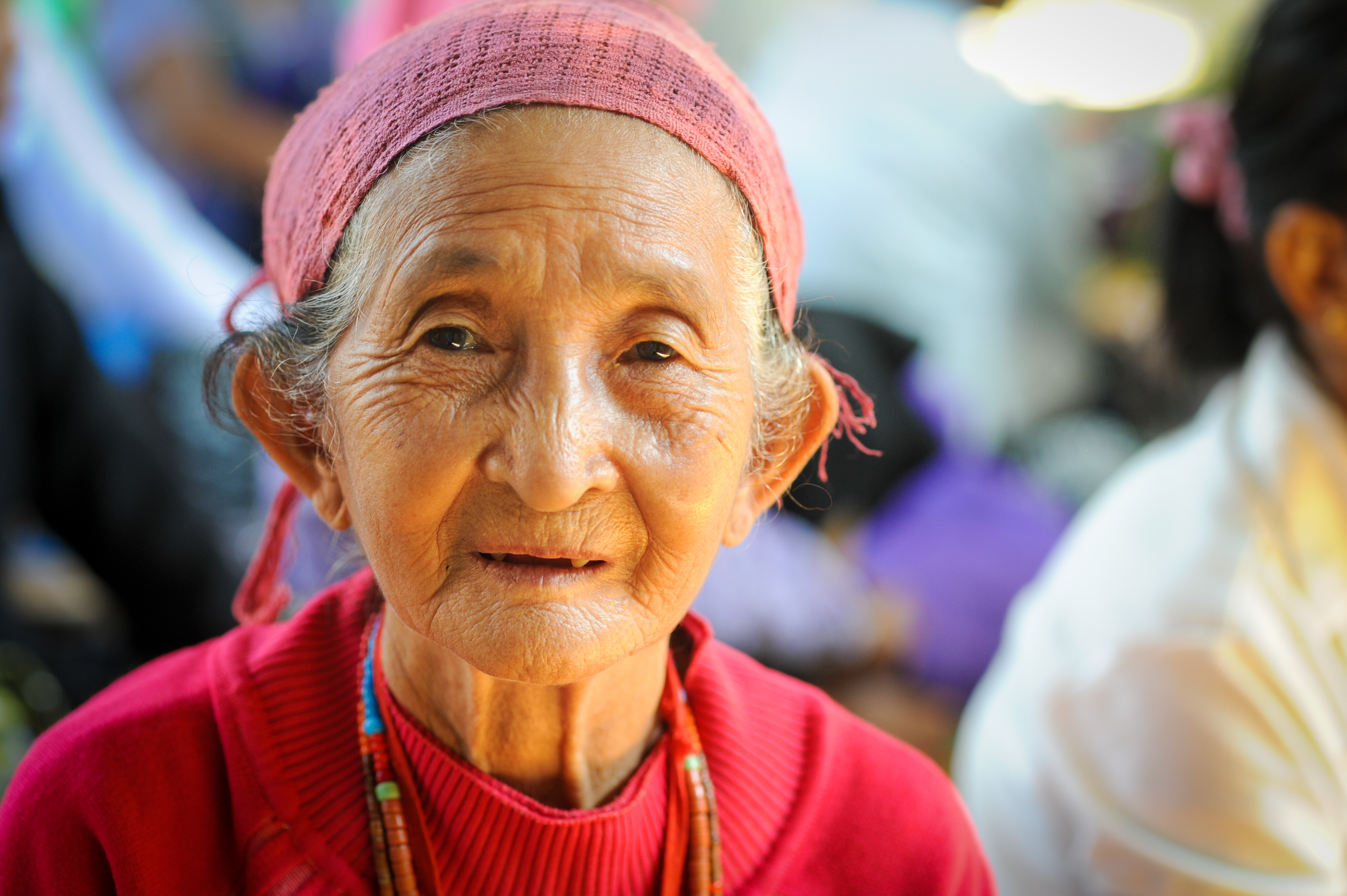
Population ageing is increasingly an issue of concern for many countries, but it also presents opportunities (Image: UNFPA Myanmar)
While we extract these valuable lessons learned over the course of this conference, let’s commit to accelerating South-South cooperation.
As a global community with an ambitious global agenda and time-bound commitments, we need to commit to do more.
We can do more by ensuring that South-South cooperation is well articulated in countries’ national development strategies.
We can identify and build the capacity of national agencies, think-tanks, civil society organizations and private sector firms interested in South-South cooperation, emphasizing the reciprocal benefits.
We can do more to document the unique, proven and particularly successful knowledge and capacity of each country so that we all know who can do what where and how.
Let’s maximize opportunities to raise awareness of South-South solutions.
At UNFPA, we believe that with our strong country presence and partnerships and our expertise as a trusted knowledge broker, we are uniquely placed, together with our UN partners, to facilitate the spread of innovation in South-South cooperation.
We provide guidance and create the platforms – be they online or face-to-face like this – to share solutions. Through our country programmes, we provide technical support that optimizes South-South initiatives’ likelihood of success. And we are committed to using our global platforms to document and share successes that inspire governments and institutions to do more.
The 2030 Agenda recognizes the value and importance of South-South partnerships in enhancing access to technology, innovation and knowledge.
We at UNFPA are convinced that only by working together, innovating for scale, building on our collective achievements and experience, our strengths and our partnerships, will we be able to achieve our three transformative aims by 2030. We have committed to:
• end unmet demand for family planning
• end preventable maternal deaths, and
• end violence and harmful practices against women and girls.
Our work towards these ends is supported by a commitment to end invisibility through high-quality population data. Ensuring that disaggregated population data are effectively collected, analyzed and used is critical in development planning. The 2020 census round is an important piece of this puzzle. When everyone is counted, we can identify and reach those still being left behind.
This is crucial in a world where millions of women and girls continue to be left behind.
Where more than 200 million women who don’t want to become pregnant still don’t have access to modern contraception.
Where more than 300,000 women still die every year from causes related to pregnancy and child birth.
Where around one woman in three will suffer physical or sexual violence at some point in her life, most often at the hands of an intimate partner.
Where 37,000 girls are married each day. That’s roughly 25 child brides every minute.
It’s an outrage – and it doesn’t have to be this way.
Many governments still invest far too little in health (in developing countries an average of just over 3% of GDP as opposed to almost 8% in the OECD countries).
This has to change.
UNFPA is applying South-South cooperation as a programming strategy across our organization to fully tap into the experiences and lessons learned from countries in the Global South.
So far this year, UNFPA has launched more than 130 South-South initiatives, investing US$15 million in these activities.
We remain firmly committed to supporting the exchange of know-how between countries in need and those with deployable expertise, and we have established a dedicated office at UNFPA headquarters to spearhead these efforts.
We have strengthened our partnerships, including with the United Nations Office for South-South Cooperation and with Partners in Population and Development, and have organized a global competition showcasing good practices to promote South-South cooperation.
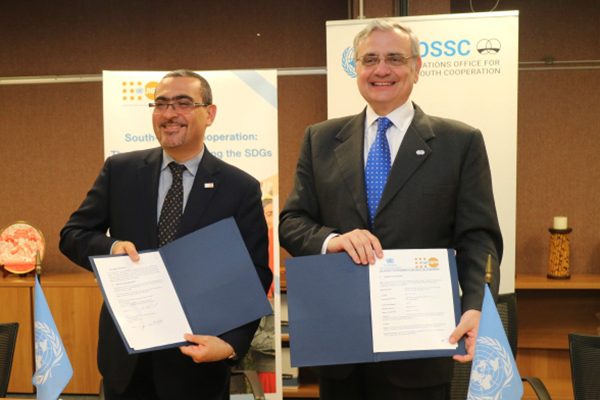
On 25 April 2018 Mr. Jorge Chediek, Envoy of the Secretary-General on South-South Cooperation and Director, UNOSSC, signed an interagency agreement with Mr Ramiz Alakbarov, Director, Programme Division, UNFPA
I said this last year at our conference in Yogyakarta and I will say it again today. If all of us here can renew our commitment to working together, helping one another and sharing and applying knowledge, technology, innovation and good practices, we can move forward a lot faster.
It’s the only way we will realize the ICPD and 2030 agendas, achieve our transformative goals and ensure a life of dignity, health and wellbeing for all, including future generations.
UNFPA stands united with you. We are committed to overcoming the challenges we face together, so that no girl or boy, woman or man, is left behind.
In President Sukarno’s inspiring words to those gathered in Bandung more than six decades ago: “The Light of Understanding has again been lit, the Pillar of Cooperation again erected. The likelihood of success of this Conference is proved already by the very presence of you all here today. It is for us to give it strength, to give it the power of inspiration – to spread its message all over the world.”
Thank you.

